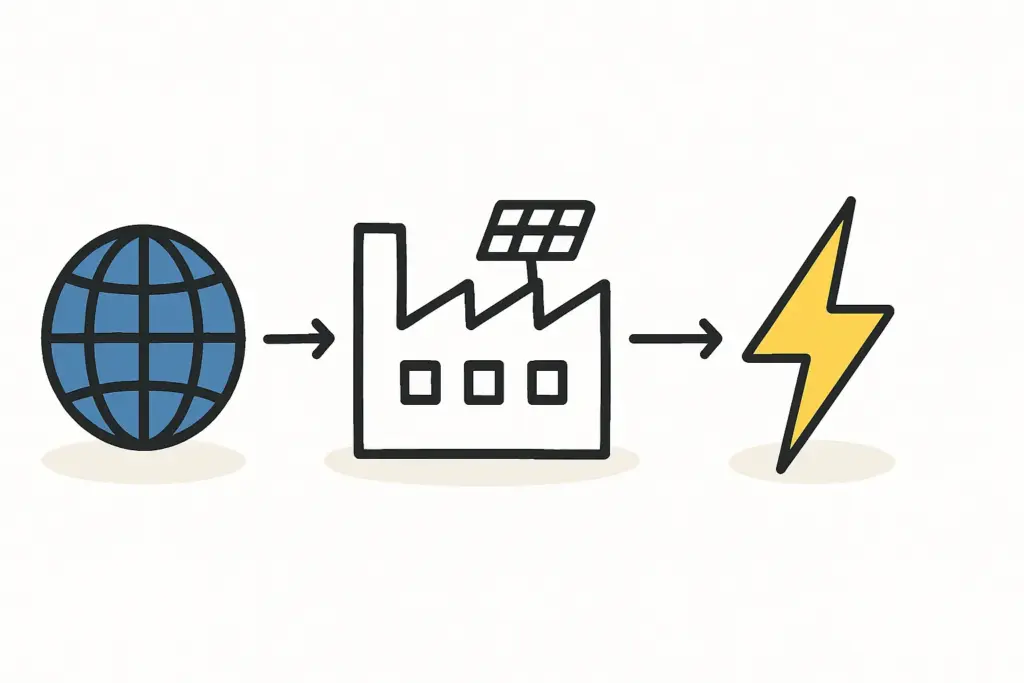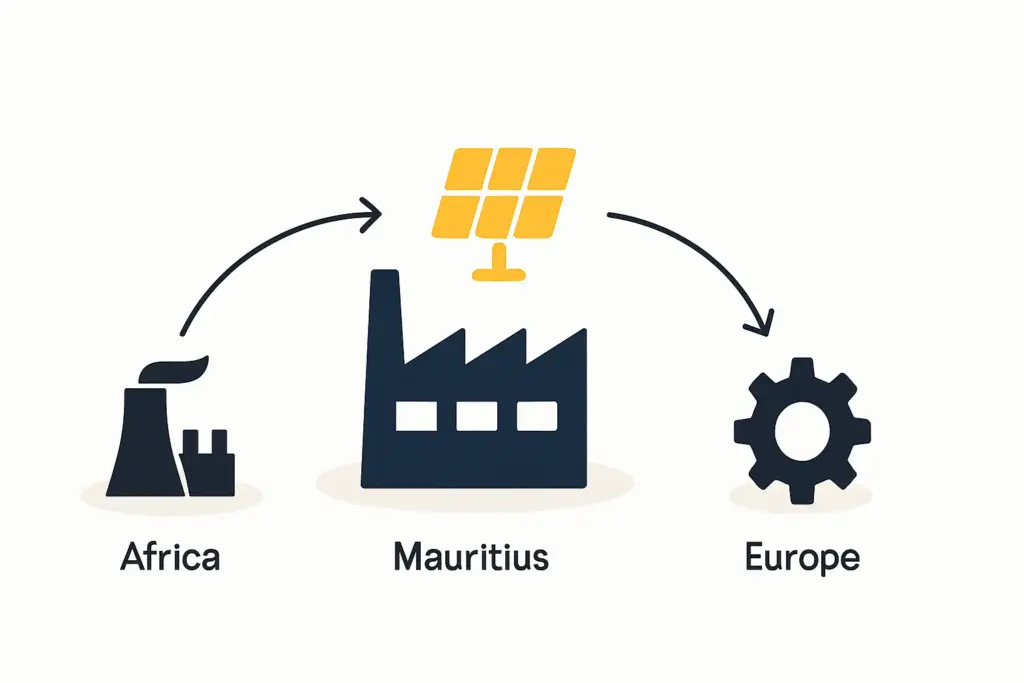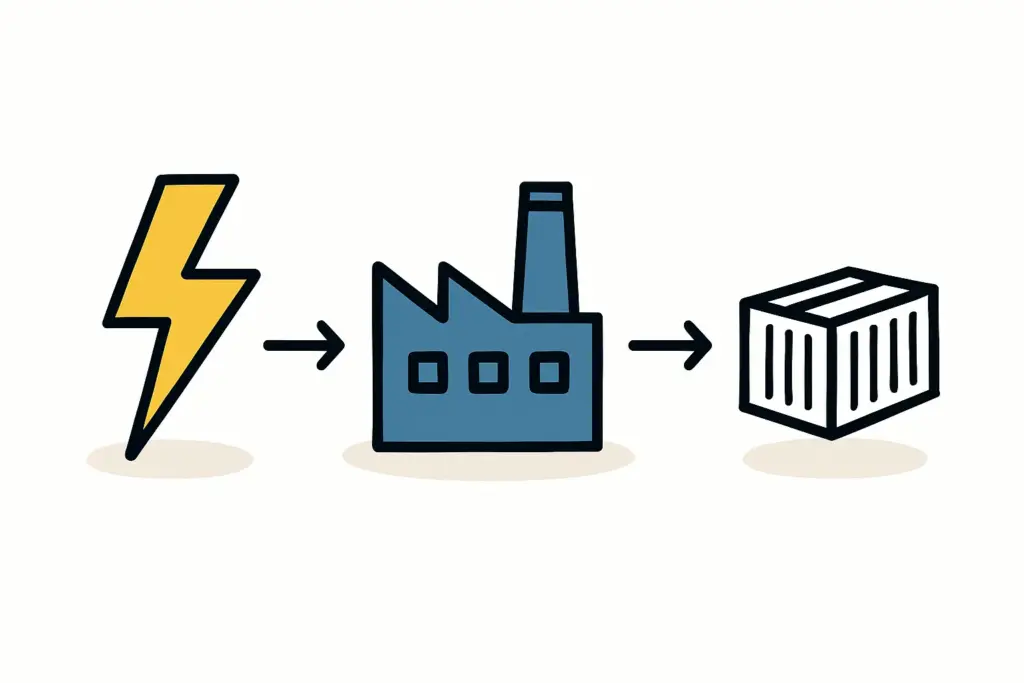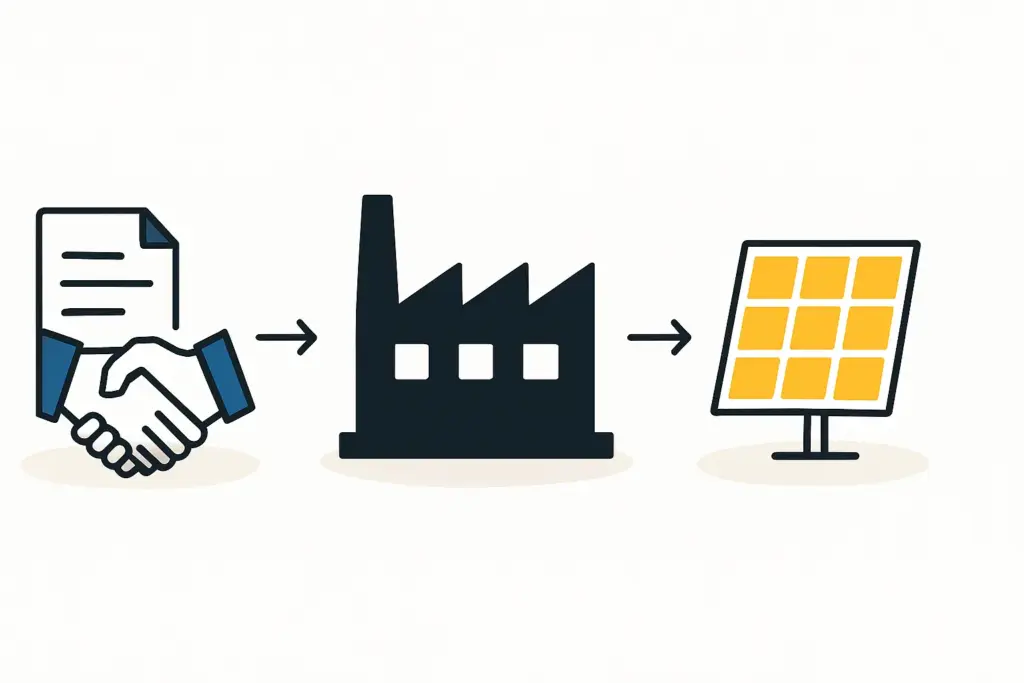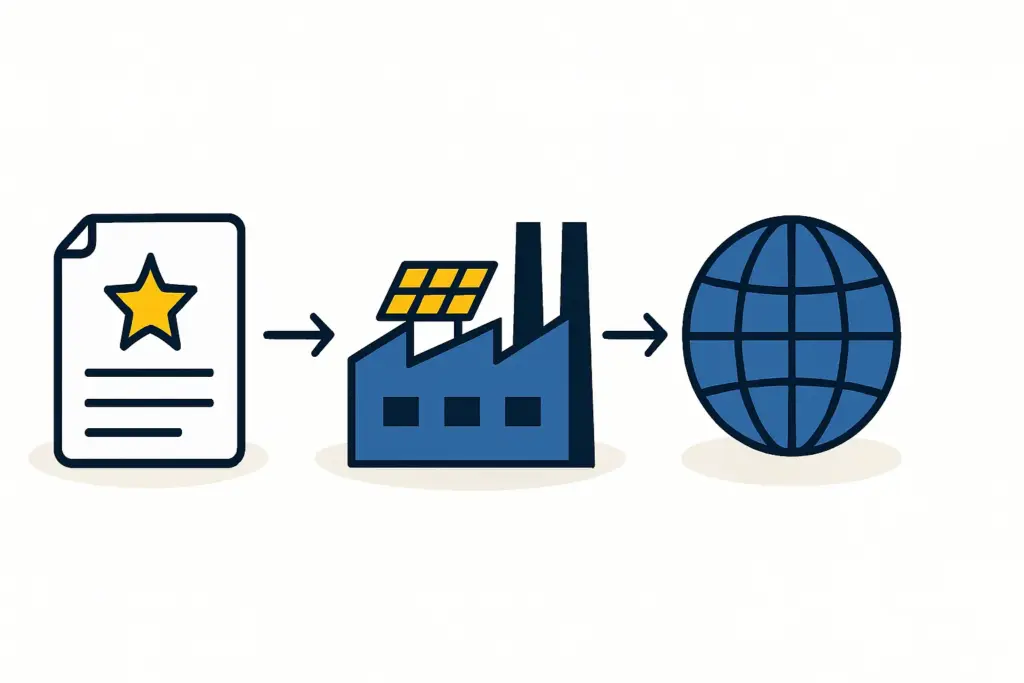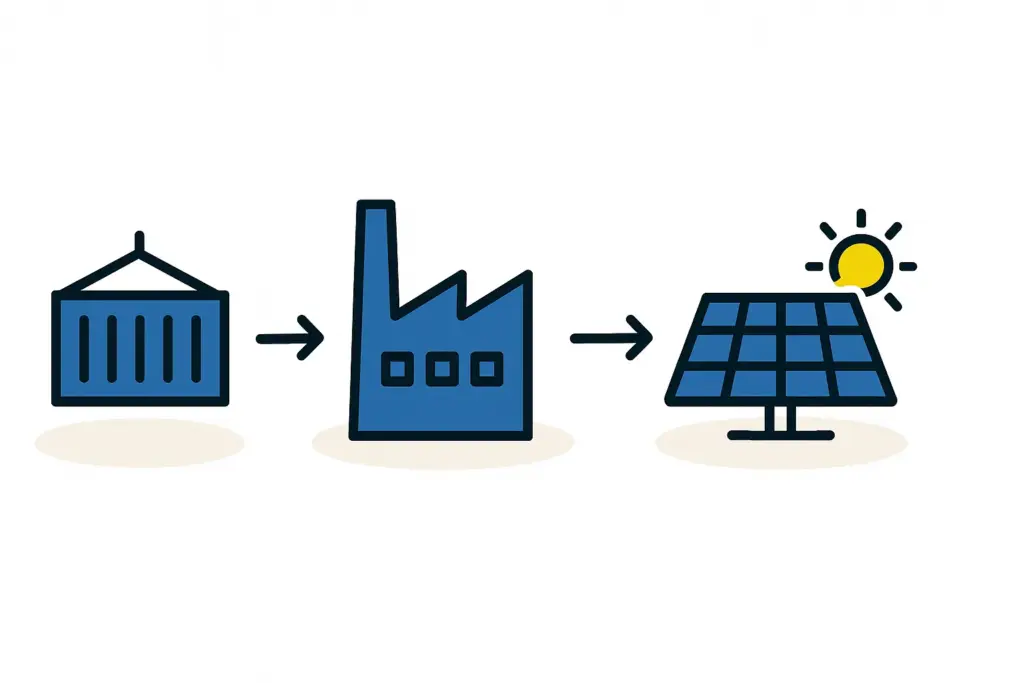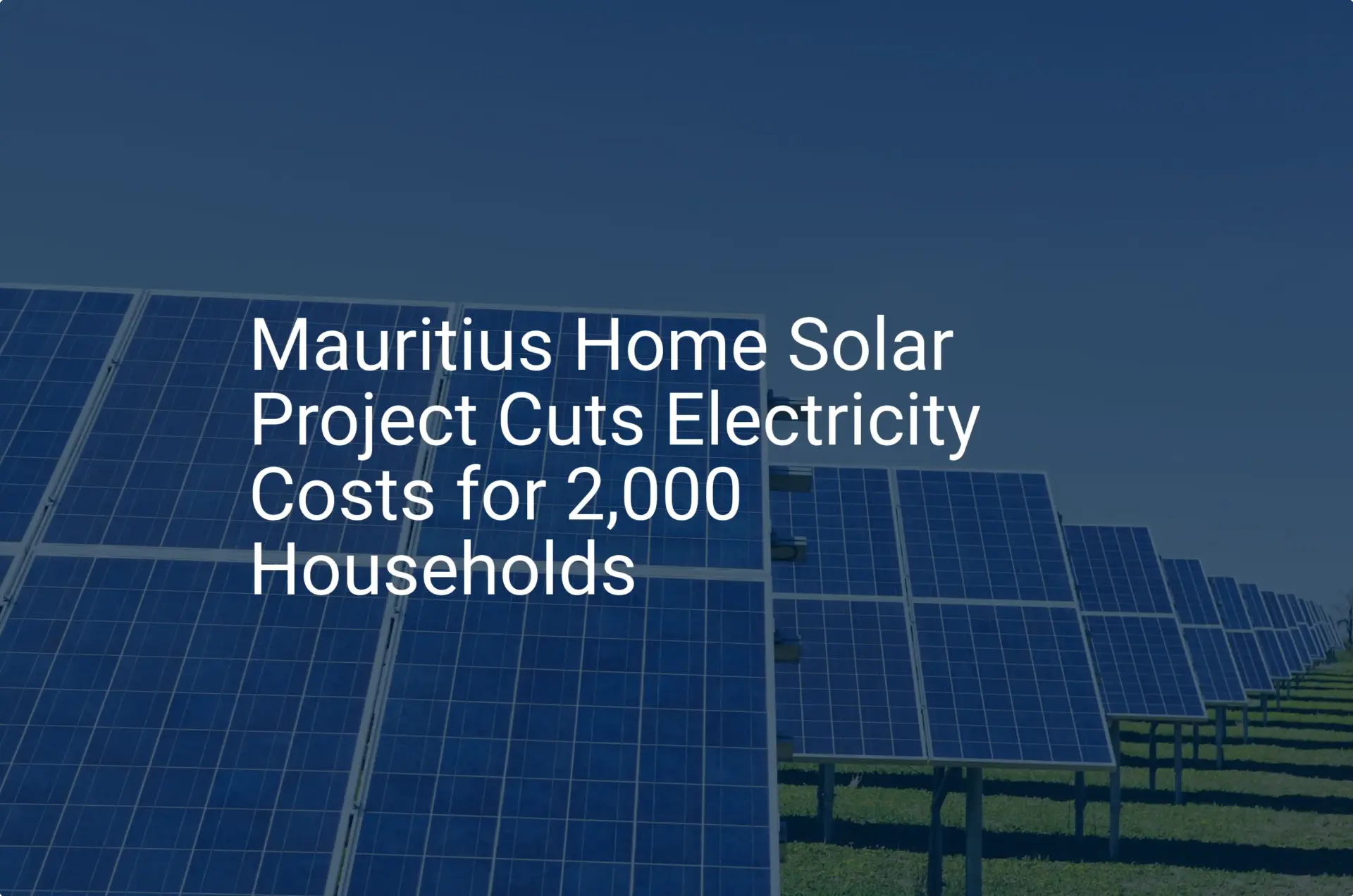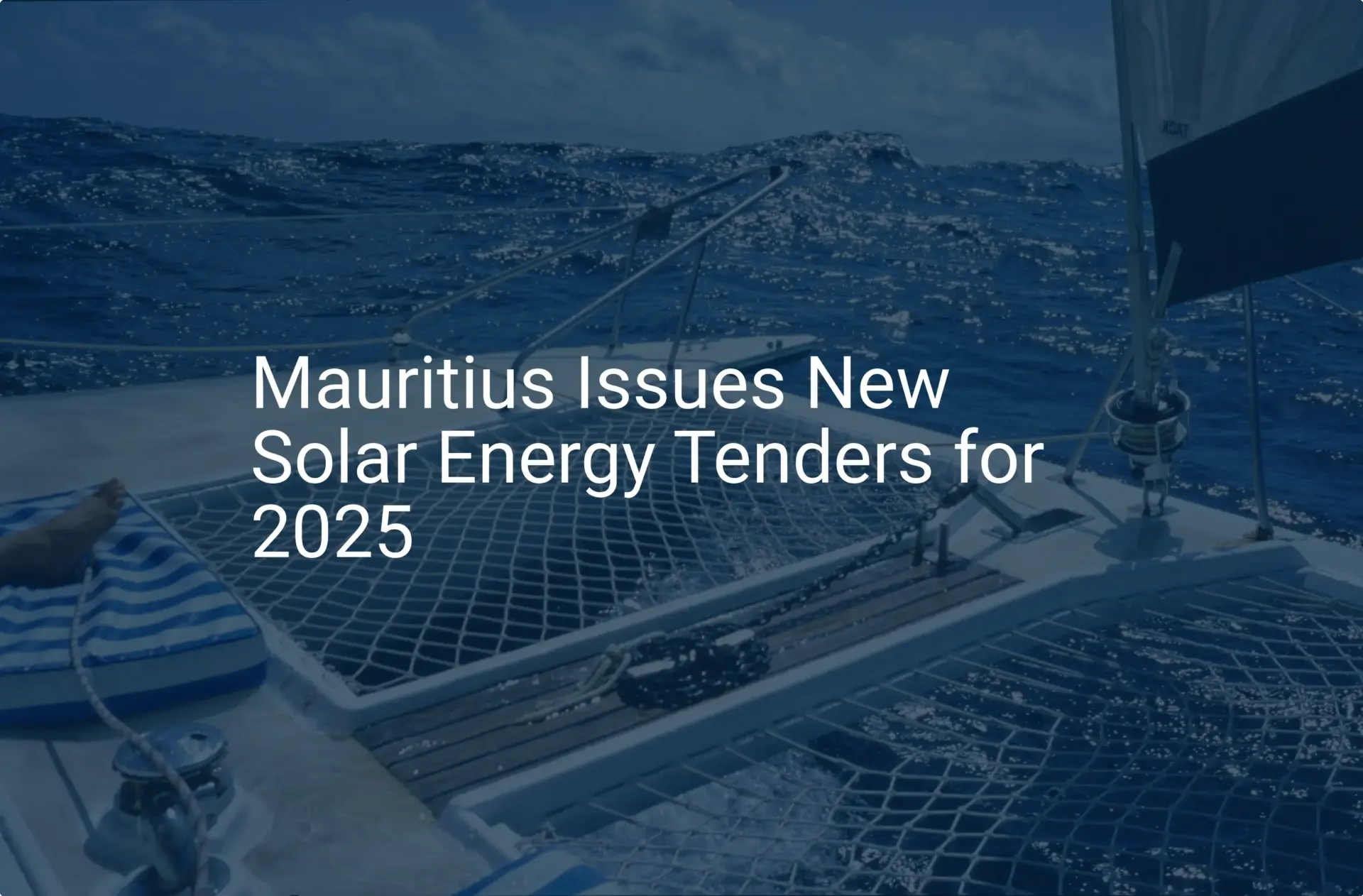Gain comprehensive insights into the statistics and metrics surrounding the solar production industry in Mauritius
- Climate to travel (n.d). Climate in Mauritius, Retrieved December 2nd, 2024 from https://www.climatestotravel.com/climate/mauritius#google_vignette
- IRENA (July 31st,2024). Energy profile Mauritius, Retrieved December 2nd, 2024 from https://www.irena.org/-/media/Files/IRENA/Agency/Statistics/Statistical_Profiles/Africa/Mauritius_Africa_RE_SP.pdf
- Global petrol prices (n.d). Mauritius fuel and electricity prices, Retrieved December 2nd, 2024 from https://www.globalpetrolprices.com/Mauritius/
- Central electricity board (n.d). Transmission and distribution, Retrieved December 2nd, 2024 from https://ceb.mu/our-activities/transmission-and-distribution
- Africa Press (July 31st,2023). Solar energy revolution in Mauritius (Africa Press), Retrieved December 2nd, 2024 from https://www.africa-press.net/mauritius/all-news/solar-energy-revolution-in-mauritius-a-technical-analysis-of-the-2023-outlook-and-beyond
- Lemauricien.com (September 7th, 2024). Mauritius energy transmission, Retrieved December 2nd, 2024. https://www.lemauricien.com/le-mauricien/mauritius-energy-transition-ambitious-plans-impeded-by-the-state-of-local-energy-governance/598266/
- Global petrol prices (march, 2024). Mauritius electricity prices. Retrieved December 2nd, 2024 from https://www.globalpetrolprices.com/Mauritius/electricity_prices/?form=MG0AV3
- Mauritius (June 7th, 2024). Energy and water statistics, Retrieved December 2nd, 2024 from https://statsmauritius.govmu.org/Pages/Statistics/ESI/Energy_Water/Energy_Water_Yr23.aspx
- SABC News (December 9th,2018). Mauritius alternative way for electricity, Retrieved December 2nd, 2024. https://www.sabcnews.com/sabcnews/mauritius-uses-sugar-as-alternative-way-to-generate-electricity/
- IRENA (January 25th,2024). Mauritius home solar project, Retrieved December 2nd, 2024 from https://www.irena.org/News/articles/2024/Jan/Home-Solar-Project-Reduces-2000-Mauritian-Households-Electricity-Costs-and-Carbon-Emissions
- SolarQuarter (march 13th,2023). Qair Signs Agreements for 60 MWac Solar Photovoltaic Energy Facilities and Battery Storage Systems in Mauritius, Retrieved December 2nd, 2024, from https://solarquarter.com/2023/03/13/qair-signs-agreements-for-60-mwac-solar-photovoltaic-energy-facilities-and-battery-storage-systems-in-mauritius/
- NewsMoris (may 21st,2024). Solar Power Farm: 9 MW of Clean Energy Soon in Amaury, Retrieved December 2nd, 2024, from https://newsmoris.com/2024/05/21/solar-power-farm-9-mw-of-clean-energy-soon-in-amaury/
- IRENA (January 25th, 2024). Home Solar Project Reduces 2,000 Mauritian Households’ Electricity Costs and Carbon Emissions, Retrievd December 2nd, 2024, from https://www.irena.org/News/articles/2024/Jan/Home-Solar-Project-Reduces-2000-Mauritian-Households-Electricity-Costs-and-Carbon-Emissions
- 6Wresearch (September 2024). Mauritius Off-Grid Solar Energy Market (2024-2030), Retrieved December 2nd, 2024 from https://www.6wresearch.com/industry-report/mauritius-off-grid-solar-energy-market
- International trade administration (October 4th, 2023). Mauritius – Country Commercial Guide. Retrieved December 2nd, 2024 from https://www.trade.gov/country-commercial-guides/mauritius-energy
- Trading economics (n.d). Mauritius Overall Average Monthly Earnings. Retrieved December 2nd, 2024 from https://tradingeconomics.com/mauritius/wages
- Trading economics (n.d). Mauritius Population. Retrieved December 2nd, 2024 from https://tradingeconomics.com/mauritius/population
- Careergigo immigration hub (n.d). 2024 Updated Price List on the Cost of Living in Mauritius. Retrieved December 2nd, 2024 from https://careergigo.net/cost-of-living-in-mauritius/
- Magellan (n.d). What is the cost of living in Mauritius like in 2024? Retrieved December 2nd, 2024 from https://magellan.mu/en/2024/08/12/what-is-the-cost-of-living-in-mauritius-like-in-2024/
- UNDP (November 20th, 2024). Paving the Way for Renewable Energy in Mauritius: A Commitment to Sustainable Action. Retrieved December 2nd, 2024 from https://www.undp.org/mauritius-seychelles/blog/paving-way-renewable-energy-mauritius-commitment-sustainable-action
- Solarquarter (July 28th, 2023). Solar Energy Revolution in Mauritius: A Technical Analysis of the 2023 Outlook and Beyond. Retrieved December 2nd, 2024 from https://solarquarter.com/2023/07/28/mauritius-solar-energy-transformation-technical-insights-into-the-2023-solar-outlook-and-future-prospects/
- Lemauricien (September 7th, 2023). Mauritius’ Energy Transition : ambitious plans impeded by the state of local energy governance. Retrieved December 2nd, 2024 from https://www.lemauricien.com/le-mauricien/mauritius-energy-transition-ambitious-plans-impeded-by-the-state-of-local-energy-governance/598266/
- IRENA (January 25th, 2024). Home Solar Project Reduces 2,000 Mauritian Households’ Electricity Costs and Carbon Emissions, Retrievd December 2nd, 2024, from https://www.irena.org/News/articles/2024/Jan/Home-Solar-Project-Reduces-2000-Mauritian-Households-Electricity-Costs-and-Carbon-Emissions
- Solarquarter (March 13th, 2023). Qair Signs Agreements for 60 MWac Solar Photovoltaic Energy Facilities and Battery Storage Systems in Mauritius. Retrieved December 2nd, 2024 from https://solarquarter.com/2023/03/13/qair-signs-agreements-for-60-mwac-solar-photovoltaic-energy-facilities-and-battery-storage-systems-in-mauritius/
- NewsMoris (November 2nd, 2024). Business70 Firms Power Up Solar Revolution Plans in Mauritius. Retrieved December 2nd, 2024 from https://newsmoris.com/2024/02/11/70-firms-power-up-solar-revolution-plans-in-mauritius/
- Qair Energy (March 1st, 2023). Mauritius: Qair awarded four Solar PV and Battery Storage (BESS) Hybrid projects totaling 60MWac. Retrieved December 2nd, 2024 from https://www.qair.energy/mauritius-qair-awarded-four-solar-pv-and-battery-storage-bess-hybrid-projects-totaling-60mwac/
- SolarQuarter (may 12th, 2023). AfDB Launches Tender for 100 MW Solar-Plus-Storage Projects to Enhance Renewable Energy Capacity in Mauritius. Retrieved December 2nd, 2024 from https://solarquarter.com/2023/05/12/afdb-launches-tender-for-100-mw-solar-plus-storage-projects-to-enhance-renewable-energy-capacity-in-mauritius/
- Yelo (December 2024). Top 19 Solar Energy Companies in Mauritius. Retrieved December 2nd, 2024 from https://www.yelo.mu/category/solar-energy?form=MG0AV3
- Privacy shield (n.d). Mauritius energy. Retrieved Decembeer 2nd, 2024 from https://www.privacyshield.gov/ps/article?id=Mauritius-Renewable-Energy&utm_source=chatgpt.com





